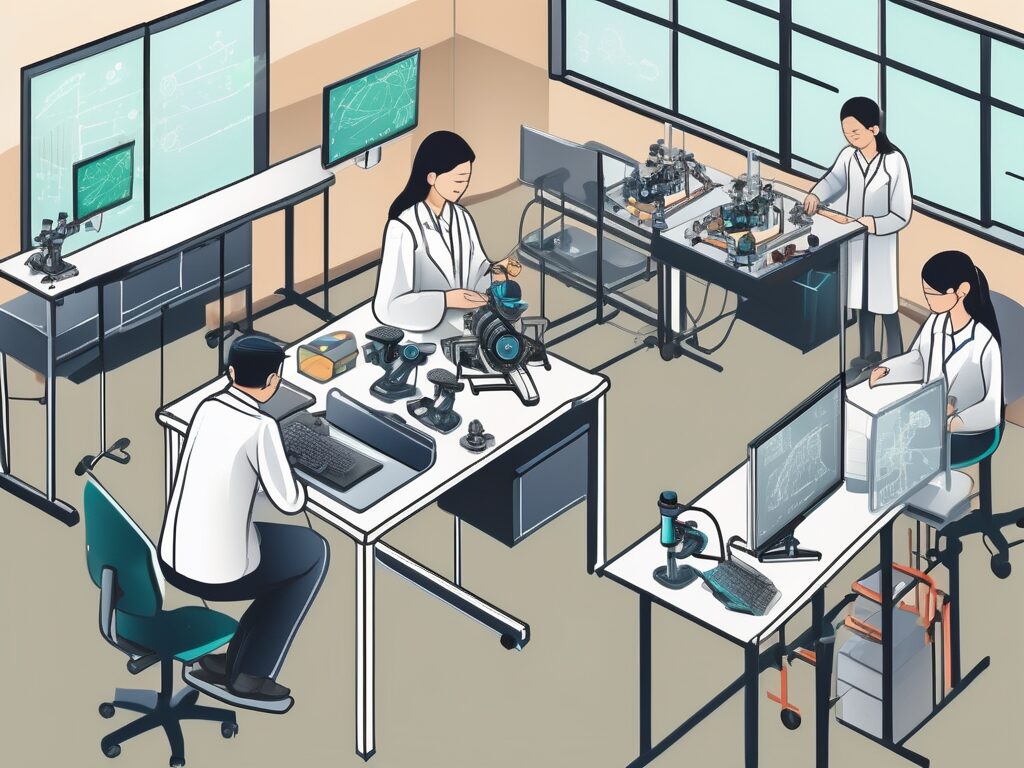In the realm of education, the acronym STEM, standing for Science, Technology, Engineering, and Mathematics, has become a buzzword. It represents an approach to learning that integrates these four disciplines to foster critical thinking, problem-solving, and creativity in students. In Thailand, the integration of an IQTS (Inquiry, Questioning, Thinking, and Synthesising) approach with STEM education is gaining traction. This article will delve into five methods of implementing STEM education in Thailand with an IQTS approach.
1. Project-Based Learning
Project-based learning is a dynamic approach to teaching in which students explore real-world problems and challenges. It’s a departure from the traditional rote learning method, and instead, encourages students to work collaboratively and think critically.
In the context of STEM education with an IQTS approach, project-based learning can be incredibly effective. For instance, students could be tasked with designing a sustainable city using their knowledge of engineering and technology. Throughout the project, they would be encouraged to question their assumptions, think critically about solutions, and synthesise their findings.
2. Incorporating Technology
Technology is a cornerstone of STEM education, and when used effectively, it can significantly enhance learning outcomes. In Thailand, schools are increasingly integrating technology into their classrooms, providing students with hands-on experience with various tools and platforms.
For example, coding and robotics are often incorporated into the curriculum, offering students a practical understanding of technology and engineering. Additionally, virtual reality (VR) can be used to create immersive learning experiences, allowing students to explore scientific concepts in a novel and engaging way.
3. Interdisciplinary Approach
STEM education is inherently interdisciplinary, combining elements of science, technology, engineering, and mathematics. However, the incorporation of an IQTS approach takes this one step further, encouraging students to draw connections between these disciplines and apply their knowledge in a holistic way.
For instance, a lesson on climate change could incorporate elements of science (understanding the greenhouse effect), technology (exploring renewable energy sources), engineering (designing energy-efficient buildings), and mathematics (analysing climate data). This interdisciplinary approach not only enhances students’ understanding of the topic but also promotes critical thinking and problem-solving skills.
4. Real-World Applications
One of the key benefits of STEM education is its focus on real-world applications. By linking classroom learning to real-world scenarios, students are more likely to understand and retain the information.
In Thailand, schools are increasingly looking for ways to incorporate real-world applications into their STEM curriculum. For example, students might be tasked with designing a water filtration system, applying their knowledge of science and engineering to solve a real-world problem. This not only enhances learning outcomes but also helps students understand the relevance of their education.
5. Professional Development for Teachers
Finally, the success of STEM education with an IQTS approach in Thailand largely depends on the quality of teaching. Teachers need to be well-versed in the principles of STEM and IQTS, and comfortable with integrating these approaches into their teaching.
Professional development opportunities, such as workshops and training courses, can equip teachers with the necessary skills and knowledge. Additionally, ongoing support and resources can help teachers effectively implement STEM education with an IQTS approach in their classrooms.
In conclusion, STEM education, combined with an IQTS approach, holds great promise for improving education in Thailand. By adopting methods such as project-based learning, incorporating technology, taking an interdisciplinary approach, focusing on real-world applications, and investing in professional development for teachers, Thai schools can prepare students for the challenges and opportunities of the 21st century.
Elevate Your Teaching Career with The IQTS at UWE
As you embrace the potential of STEM education with an IQTS approach in Thailand, consider taking your teaching career to the next level with The International Qualified Teacher Status (iQTS) Programme at UWE. This prestigious Level 7 qualification is designed to help educators worldwide achieve excellence and overcome common barriers such as stringent qualification requirements at international schools. With the iQTS at UWE, you can expect a significant boost in interview callbacks, promotion rates, and salary, while also expanding your professional network and adapting to global education systems. Don’t let isolation or the challenge of balancing work and study hold you back. Make Your Next Step towards a transformative professional development journey with the iQTS at UWE.

